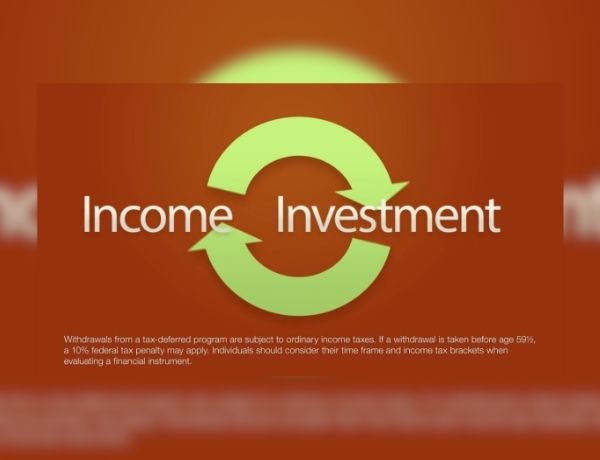Should You Sell Your Life Insurance Policy?
Life insurance is designed to provide your estate with the funds necessary to pay debts and to leave your loved ones with some financial security. However, there are instances in which you may need money, or your circumstances change, and life insurance is no longer necessary. Selling your life insurance policy is a viable option, but it is critical to understand the process before making this financial decision.
It is essential to keep in mind that several factors will affect the cost and availability of life insurance, including age, health, and the type and amount of insurance purchased. Life insurance policies have expenses, including mortality and other charges. If a policy is surrendered prematurely, the policyholder may also have to pay surrender charges and could have income tax obligations. You should also consider determining whether you are insurable before implementing a strategy involving life insurance. Any guarantees associated with a policy are dependent on the ability of the issuing insurance company to continue making claim payments.
Life and Viatical Settlements
Selling your insurance policy to a third party for a specified amount of money is known as a life settlement. You receive cash, and the buyer now owns your policy and continues to pay the premiums. When you die, the new owner receives all the death benefits.
If the policyholder has been diagnosed with a terminal illness and is not expected to survive for more than two years, the life insurance sale is known as a viatical settlement. These settlements can pay for medical expenses and other debts, so family finances are not overwhelmed.
Life Settlement Eligibility
Not everyone can sell their life insurance policies, as certain conditions must apply. Generally, only those aged 65 and over qualify for a life settlement. Such policies must usually have death benefits of at least $100,000, and there may be a minimum period for which the policy must have been active.1
Viatical settlements do not have a minimum age requirement, but the policyholder must generally have two years or less in life expectancy.
Why You May Wish to Sell Your Life Insurance Policy
Every policyholder has their own reasons for selling life insurance, but common motivations include:
- No longer having anyone reliant on the policyholder's support
- No heirs
- Funding retirement needs
- Inability to continue paying the premiums
- Needing to pay for a nursing home or other long-term care
- Finding themselves over-insured
- No need for the safety net provided by the policy
For many older adults, paying monthly premiums becomes increasingly burdensome. After years of paying premiums, they may be at risk of losing their insurance due to an increasing lack of affordability. For some seniors, receiving a lump sum payment is a wiser option than simply losing insurance coverage due to premium costs.
Finding a Buyer
Life insurance sales usually involve working with a settlement broker, who will find investors willing to purchase your policy. There is an opportunity to shop for the best deal. You can also work with a provider who will buy the policy from you directly.
Age is typically an important factor when selling a life insurance policy. Potential investors tend to favor policies held by older adults. Why? Because they're looking to pay as little as possible in future premiums before receiving the death benefit.
If you're looking to sell your policy, you should expect to provide all medical records. Using a mathematical formula, medical underwriting by the providers gives an estimate of how long the policyholder is expected to live.
How Much Is a Life Insurance Policy Worth?
You will likely not receive your policy's face value. On average, recipients of a life settlement get approximately four times the policy's cash surrender value. The death benefit value typically varies between 10 and 25 percent. This means a $100,000 policy will provide you with up to $25,000.1
Factors affecting how much you will get for selling your life insurance policy include life expectancy, its cash value, and the premium amount. Individuals with shorter life expectancy will likely receive a larger settlement amount.
When a policyholder sells their policy, the cash payment is almost always greater than the policy's surrender value, but less than the death benefit.
If you have a large policy, it is possible to sell only the amount you need. For example, if you own a $2 million policy, you can sell half of it, retaining the rest for the beneficiaries.
Finally, not everyone selling their life insurance policy receives a lump sum. Some people may prefer a settlement in which income is paid over a predetermined amount of time.
Life Settlement Considerations
Before selling your life insurance policy, it is crucial to consider all the financial and practical aspects. Prior to making your decision, you should consult a financial professional or your accountant. You'll want to be sure that the sale of the policy does not trigger detrimental tax obligations or result in losing access to public benefits, such as Medicaid.
Life settlements include all sorts of fees, and it is vital that you understand all the costs involved. There are alternatives to selling your life insurance policy that may prove just as beneficial, such as borrowing from it. Your financial professional or insurance agent can help you review these options and decide what may be best for your financial picture.
1. Annuity.org, April 25, 2022
The content is developed from sources believed to be providing accurate information. The information in this material is not intended as tax or legal advice. It may not be used for the purpose of avoiding any federal tax penalties. Please consult legal or tax professionals for specific information regarding your individual situation. This material was developed and produced by FMG Suite to provide information on a topic that may be of interest. FMG, LLC, is not affiliated with the named broker-dealer, state- or SEC-registered investment advisory firm. The opinions expressed and material provided are for general information, and should not be considered a solicitation for the purchase or sale of any security. Copyright FMG Suite.



